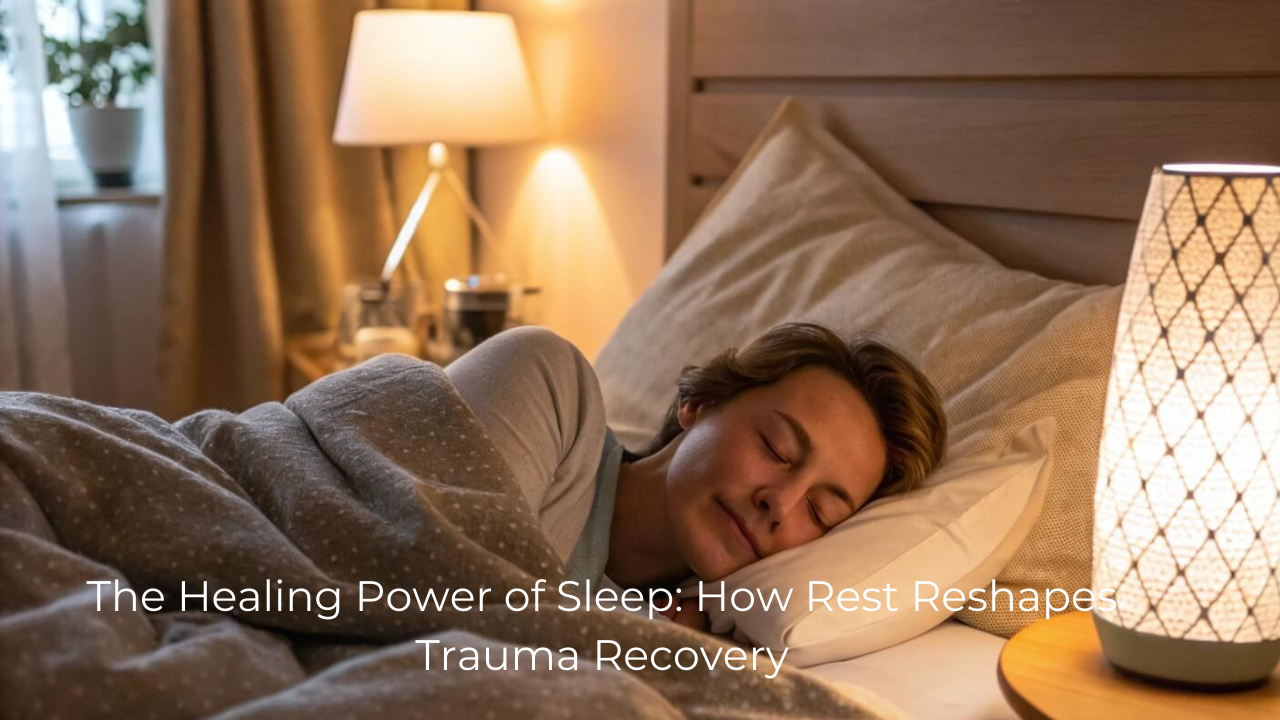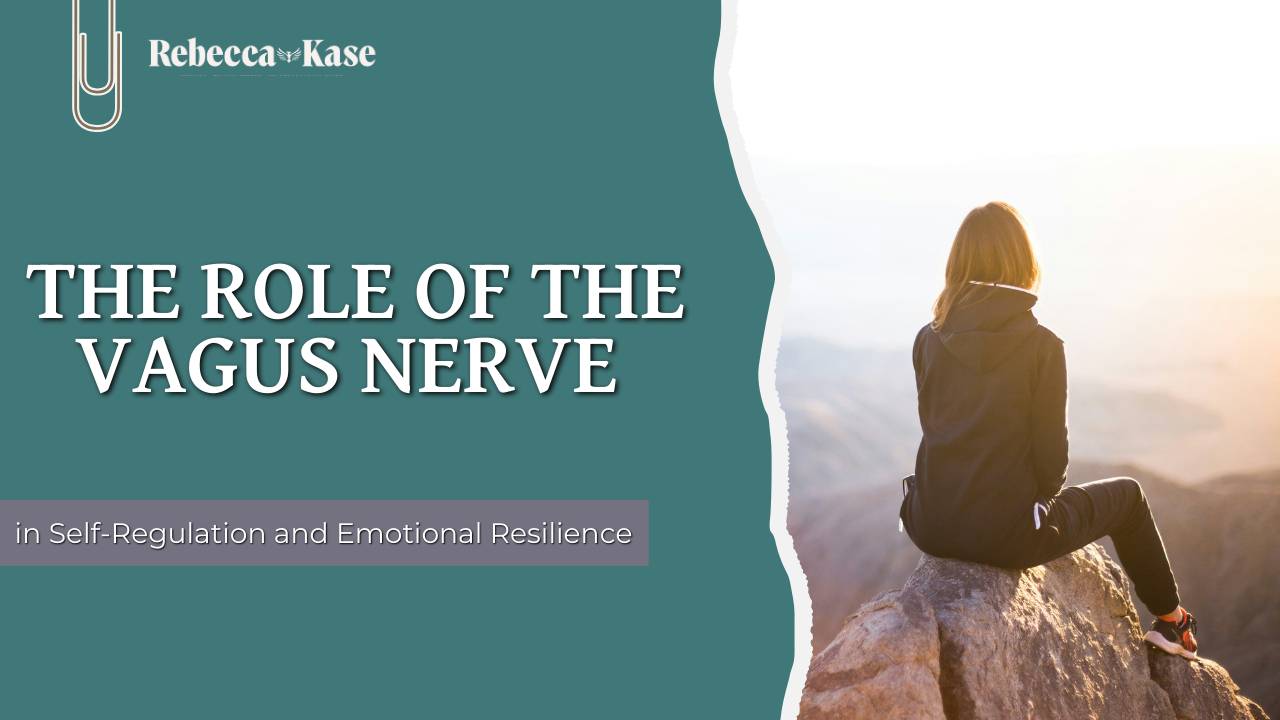
The Healing Power of Sleep: How Rest Reshapes Trauma Recovery
The Healing Power of Sleep: How Rest Reshapes Trauma Recovery
Ever noticed how a single night of poor sleep can leave you feeling irritable and emotionally fragile? Now imagine living with that vulnerability day after day while trying to heal from trauma. As someone who's spent years researching the connection between sleep and mental health, I've seen firsthand how the right sleep habits can dramatically transform recovery journeys.
The Invisible Thread: Sleep and Your Emotional Wellbeing
Let's start with something you might recognize: that short-fused feeling after tossing and turning all night. There's a reason for that. Sleep isn't just recovery time for your body—it's critical maintenance for your emotional circuits.
When you're sleep-deprived, your brain's emotional command center—the amygdala—is more susceptible to going into overdrive, while the prefrontal cortex (your brain's rational manager) struggles to keep up. Essentially, poor sleep leaves you with an emotional gas pedal but no brakes.
For entrepreneurs and business owners juggling countless responsibilities, this emotional imbalance doesn't just affect personal wellbeing—it impacts decision-making, team relationships, and ultimately, business success.
How Sleep Deprivation Hijacks Your Emotions
Sleep deprivation creates a perfect storm for emotional dysregulation. Research shows that after just one night of poor sleep, negative emotional responses increase by up to 60% according to Grand Rising Behavioral Health.
Think about it: How clear-headed are you when making decisions after a sleepless night? The answer probably isn't encouraging.
For trauma survivors, this emotional volatility is particularly problematic. When your emotional regulation system is already compromised by trauma, poor sleep can make recovery feel impossible—like trying to rebuild a house while simultaneously fighting a fire.
The REM Connection: Sleep's Secret Trauma Processing Tool
Here's where sleep gets really fascinating—and crucial for trauma recovery. During REM (Rapid Eye Movement) sleep, your brain processes emotional experiences in a neurochemically unique environment. This special state allows traumatic memories to be processed and integrated without the intense emotional charge that accompanied the original experience.
In other words, REM sleep helps separate the emotional sting from difficult memories.
Why REM Sleep Is Critical for Trauma Recovery
For trauma survivors, this memory processing function is invaluable. During REM sleep:
- The brain reactivates traumatic memories in a safe biochemical environment
- Stress hormones like norepinephrine are naturally suppressed
- New connections form that help integrate fragmented traumatic memories
- The emotional charge of memories is gradually reduced
Breaking the Cycle: PTSD and Sleep Disturbances
Unfortunately, trauma and sleep problems often create a vicious cycle. Post-traumatic stress disorder (PTSD) commonly causes sleep disturbances—approximately 70% of people with PTSD report significant sleep problems. These typically include:
- Difficulty falling asleep due to hypervigilance
- Frequent awakenings from nightmares
- Reduced REM sleep quality
- Fear of sleep itself due to trauma-related nightmares
This creates a cruel paradox: trauma survivors desperately need quality sleep to recover, yet trauma itself makes sleep elusive. The brain needs sleep to process trauma, but trauma prevents sleep.
Can Improving Sleep Patterns Reduce PTSD Symptoms?
The encouraging answer is yes. Studies show that targeted sleep interventions can reduce PTSD symptom severity by 20-30%.
Think of it this way: if sleep problems and trauma symptoms form a negative feedback loop, improving sleep can help reverse the cycle. Better sleep leads to improved emotional regulation, which reduces daytime trauma symptoms, which then further improves sleep.
The Timing Question: When to Address Sleep After Trauma
A question I'm frequently asked is: How soon after trauma should sleep interventions begin?
The latest research suggests that sleep should be addressed as soon as possible—even in the immediate aftermath of trauma. Early sleep disruptions predict the development of chronic PTSD, suggesting that protecting sleep quality from the outset may help prevent trauma from becoming entrenched.
Sleep-Specific Approaches for Trauma Recovery
Now for the practical part: what actually works for improving sleep during trauma recovery?
Evidence-Based Sleep Interventions for Trauma Survivors
- Cognitive Behavioral Therapy for Insomnia (CBT-I)
This gold-standard approach addresses the thoughts and behaviors that perpetuate sleep problems. For trauma survivors, CBT-I is often adapted to address specific trauma-related sleep issues. - Imagery Rehearsal Therapy (IRT)
This specialized technique helps reduce trauma-related nightmares by having you rehearse new, non-threatening endings to recurring nightmares while awake. - Sleep Hygiene With Trauma-Specific Modifications
Basic sleep hygiene practices with adjustments for trauma needs. For example, while reducing screen time before bed is standard advice, trauma survivors might benefit from calming nature videos as a transitional activity if complete silence triggers hypervigilance. - Pharmacological Approaches
Sometimes, medication plays a temporary role in breaking severe sleep disruption cycles. The key word is "temporary"—these aren't long-term solutions but can help establish initial stability.
Stress Management Through Sleep: A Practical Approach
For busy entrepreneurs, sleep often takes a backseat to other priorities. But consider this perspective shift: what if quality sleep isn't just another health chore but your most powerful stress management tool?
The science supports this view. A single night of good sleep can:
- Lower cortisol levels by up to 50%
- Improve emotional regulation capacity
- Enhance problem-solving abilities
- Boost immune function
- Improve next-day productivity
In other words, sleeping well isn't time away from your business—it's investing in your most valuable business asset: yourself.
A 7-Day Sleep Reset for Entrepreneurs
If you're ready to prioritize sleep as part of your trauma recovery or stress management strategy, try this one-week reset:
- Day 1-2: Assessment Track your current sleep patterns and identify specific disruptions.
- Day 3-4: Environment Optimization Make your bedroom a sleep sanctuary: dark, quiet, cool, and comfortable.
- Day 5-6: Routine Development Create consistent pre-sleep routines that signal "safety" to your brain.
- Day 7: Progress Evaluation Assess improvements and identify next steps.
Remember, progress with sleep isn't always linear, especially for trauma survivors. Some nights will be better than others. The goal is improvement, not perfection.
Beginning Tonight: Your First Steps
If you're struggling with sleep in the aftermath of trauma or during high-stress business periods, start with these manageable steps:
- Commit to a consistent wake-up time (even on weekends)
- Create a 30-minute buffer between work/screens and sleep
- Write down worried thoughts before bed to externalize them
- Make your bedroom slightly cooler than the rest of your home
- If you can't sleep after 20 minutes, get up briefly rather than tossing and turning
These simple practices can begin shifting your sleep patterns immediately, creating a foundation for deeper trauma recovery work.
A Closing Thought
Sleep isn't just rest—it's active healing. In the complex journey of trauma recovery, quality sleep might be the most underutilized resource available to you. As one client beautifully put it: "Sleep was the quiet healer I'd been ignoring. When I finally let it work, everything else in my recovery started working too."
Tonight, as you prepare for sleep, remember that you're not just ending today—you're actively healing and preparing for a stronger tomorrow.
What's one small change you could make to your sleep routine tonight? Sometimes, recovery begins with the simplest choice: prioritizing rest.




